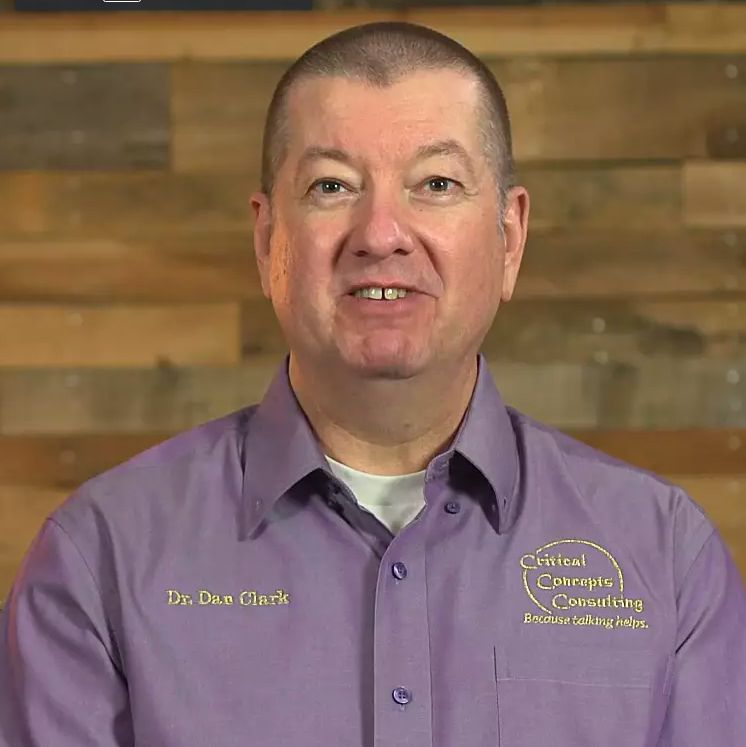Welcome to my Training Center, and thanks for choosing to complete your training in suicide assessment, treatment, and management with me.
My 6 hour workshop follows the 8 core competencies developed by experts in suicidology for assessing and managing suicidal risk. Topics include managing personal reactions to suicidal patients; assessing risk factors, warning signs, and protective factors; effective risk assessment; developing a treatment plan; and recognizing potential legal challenges.
At the completion of this workshop, participants will be able to:
- Recognize their personal reactions to suicide, and implement strategies to manage those reactions
- Describe basic terms of suicide, and assess risk factors, warning signs, and protective factors for suicide
- Assess level of suicidal ideation, plans, and means, and compose a clinical formulation of risk
- Select necessary components of a treatment and services plan for patients considering suicide
- Describe important therapeutic processes to document
- Explain potential legal challenges
Certificates:
- Contact hours certificate, 6 hours - no charge
- WA State Psychological Association certificate, 6 CEs - not available at this time
- WA Association for Marriage and Family Therapy certificate, 6 CEUs - no charge
- Medical Quality Assurance Committee, Category II CME - no charge
As a final note, to get credit for each section, you must click the button "Complete and continue" in the upper right hand corner of the screen.
If you have any questions throughout the workshop, please feel free to contact me at drdan@criticalconcepts.org or 360.349.1698.
Thanks again!
Get started now!
Frequently Asked Questions
Your Instructor

As a licensed clinical psychologist currently working as the Washington State Patrol Department Psychologist, Dr. Daniel W. Clark, PhD provides clinical services to Washington State Patrol (WSP) employees and their family members, teaches at the WSP Academy, provides psychological screening of trooper cadet applicants, and consults with command staff on Agency issues.
Dr. Clark has studied suicide for over 30 years, and presented hundreds of hours on the topic from conference presentations to 2-day workshops. While a graduate student in Southern California in the 80's, he took the opportunity to attend a day-long presentation by the late Dr. Ed Shneidman that helped inspire him to choose suicidology as his specialty. Dan has used that knowledge and experience in creating his 6 hour course, Assessment, Treatment, and Management of Suicide(ATMS). This course meets the new Washington State requirement for suicide training for mental health and medical professionals.
Also as a graduate student, Dan decided to complete his internship, or residency, with the U.S. Army. His first assignment was with 3d Infantry Division in Germany. He was called to serve in 1990 with 1st Armored Division (Iron Soldiers!) as the Division Psychologist during the first Gulf War, and learned a lot about PTSD and trauma. After completing his time in Germany with 3ID, he served at Madigan Army Medical Center and the 98th Combat Stress Control Company, then taught and eventually managed a senior course for Army officers. In late 2013, he was promoted to colonel and assumed the position of Reserve Component Psychology Advisor.
Dr. Clark is a faculty member of the International Critical Incident Stress Foundation and a recognized CISM: Group Crisis Intervention, CISM: Advanced Group Crisis Intervention, CISM: Individual Crisis Intervention and Peer Support, and Law Enforcement Perspectives for CISM Enhancement instructor. In 1998, he developed his Suicide Prevention, Intervention, and Postvention course, which he presents with the ICISFaround the country. He also co-wrote the Strategic Response to Crisis course with Drs. Jeff Mitchell and George Everly.
 Oso/SR 530 Mudslide Survey |
He is a past-President of the Washington Critical Incident Stress Management Network. This organization provides training and service in managing critical incidents. In March 2014, representatives from the CISM Network deployed to the Oso/SR 530 mudslide in WA State which killed over 40 people. Dan was one of several team members that worked in the Incident Command Post; his specific role was as the clinical advisor to the CISM team. Their mission was to assist the 1200 responders cope with the disaster response. Members of the Network were on site for 30 days, and spoke to 3200 responders in 1-on-1s and 732 in groups
Dr. Clark has a variety of presentations prepared, including suicide prevention, intervention, and postvention; critical incident stress management; peer support; death notification; time, anger, and stress management; workplace violence; coping with change, communication skills, and related topics.
